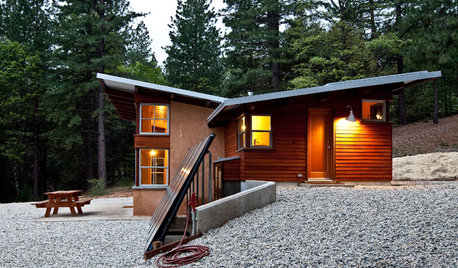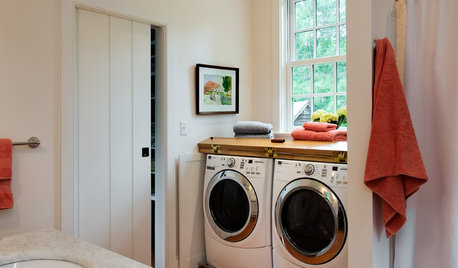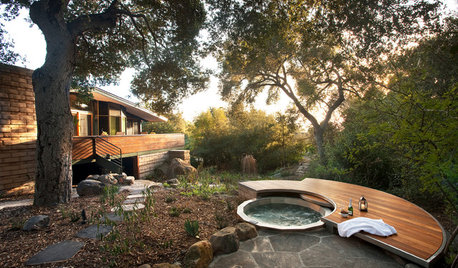tankless hot water
jupiterfla
12 years ago
Related Stories

GREAT HOME PROJECTSHow to Switch to a Tankless Water Heater
New project for a new year: Swap your conventional heater for an energy-saving model — and don’t be fooled by misinformation
Full Story
SAVING WATER11 Ways to Save Water at Home
Whether you live in a drought-stricken area or just want to help preserve a precious resource, here are things you can do to use less water
Full Story
GREAT HOME PROJECTSHow to Add a Solar Water Heater
Lower energy bills without a major renovation by putting the sun to work heating your home’s water
Full Story
GARDENING GUIDESGreat Design Plant: Desert Marigold Cheers Up Hot, Dry Areas
Sunny but tough, this perennial thrives with little water and lots of sun
Full Story
GREEN BUILDINGWater Sense for Big Savings
Keep dollars in your pocket and preserve a precious resource with these easy DIY strategies
Full Story
LANDSCAPE DESIGN10 Ideas for a Creative, Water-Conscious Yard
Check out these tips for a great-looking outdoor area that needs less water
Full Story
GARDENING AND LANDSCAPING8 Ways to Beautifully Integrate an Outdoor Hot Tub
Harmonize your hot tub with your landscape for good looks and great relaxation
Full Story
GARDENING AND LANDSCAPING13 New Ways to Make a Splash With a Hot Tub
Check out the modern options and custom features that are making outdoor spa tubs hot again
Full Story
CONTAINER GARDENSCactus and Succulent Containers Are Ideal for Hot, Sunny Spots
Bring on the sun with these heat-loving succulent container gardens
Full Story
GARDENING AND LANDSCAPING12 Naturally Beautiful Hot Tubs
Prefer a no-plastic look for your patio or yard? Wood, stone and concrete make these hot tubs fit right in with nature
Full StoryMore Discussions








ionized_gw
zontik
Related Professionals
Grain Valley Kitchen & Bathroom Remodelers · Hopewell Kitchen & Bathroom Remodelers · Channahon Kitchen & Bathroom Remodelers · Clovis Kitchen & Bathroom Remodelers · Emeryville Kitchen & Bathroom Remodelers · Franconia Kitchen & Bathroom Remodelers · Gardner Kitchen & Bathroom Remodelers · Kendale Lakes Kitchen & Bathroom Remodelers · Los Alamitos Kitchen & Bathroom Remodelers · Overland Park Kitchen & Bathroom Remodelers · Shawnee Kitchen & Bathroom Remodelers · Southampton Kitchen & Bathroom Remodelers · Fairmont Kitchen & Bathroom Remodelers · Sharonville Kitchen & Bathroom Remodelers · Wilmington Island Kitchen & Bathroom Remodelersionized_gw
aidan_m
ionized_gw
jupiterflaOriginal Author
beth4